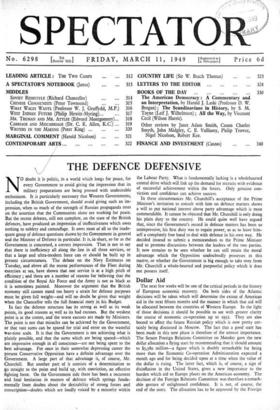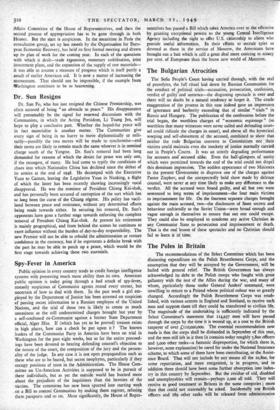Dollar Aid
The next few weeks will be one of the critical periods in the history of European economic recovery. On both sides of the Atlantic decisions will be taken which will determine the extent of American aid in the next fifteen months and the manner in which that aid will be allocated between the countries of Western Europe. In the light of those decisions it should be possible to see with greater clarity the course of economic co-operation up to 1952. They are also bound to affect the future Russian policy which is now pretty cer- tainly being discussed in Moscow. The fact that a good start has been made in this new phase is therefore of the utmost importance. The Senate Foreign Relations Committee on Monday gave the new dollar allocation a flying start by recommending that it should amount to $5,580 million—a figure which is doubly remarkable for being more than the Economic Co-operation Administration expected a month ago and for being decided upon at a time when the value of the dollar is rising. The latter fact, which is, of course, a sign of disinflation in the United States, gives a new importance to the burden which aid to Europe places on the American economy. The decision of the Foreign Relations Committee was therefore a remark- able gesture of enlightened confidence. It is not, of course, the end of the story. The allocation has to be approved by the Foreign
Affairs Committee of. the House of Representatives, and then the second process of appropriation has to be gone through in both Houses. But the start is auspicious. In the meantime in Paris the consultative group, set up last month by the Organisation for Euro- pean Economic Recovery, has held its first formal meeting and drawn up its plan of work for the coming year. In each of the questions with which it dealt—trade expansion, monetary stabilisation, joint investment plans, and the expansion of the supply of raw materials— it was able to assume a measure of progress which is itself partly a result of earlier American aid. It is now a matter of increasing the momentum. That should not be impossible, if the example from Washington continues to be so heartening.







































